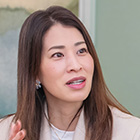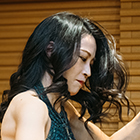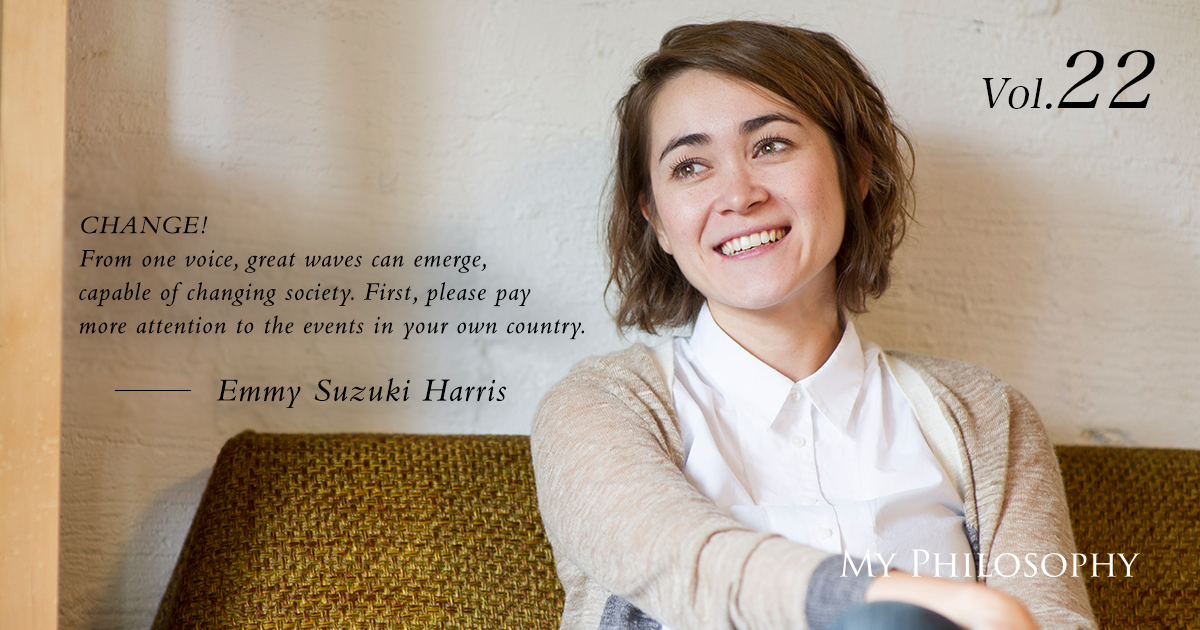
As the Japanese representative for "Change.org," Emmy Suzuki Harris is working to shift the consciousness of Japanese people who are not accustomed to speaking out. We had the opportunity to discuss the reasons she joined "Change.org," as well as her aspirations for the future.
Profile
Vol.22 Emmy Suzuki Harris
Japanese Representative of Change.org
Emmy Suzuki Harris graduated from Yale University. Born to an American father and a Japanese mother, she was raised in Japan until high school. After graduating from university, she joined McKinsey & Company. In 2008, she volunteered for Barack Obama's presidential campaign. Subsequently, she was involved in launching the social movement incubator company Purpose and contributed to its growth. She returned to Japan in 2012 and took on the role of Japanese representative for Change.org, a position she holds to this day.
*Please note that the titles and information are based on the status as of October 2013, when the interview was conducted.
It’s Enjoyable to Change Society with One’s Own Opinions.
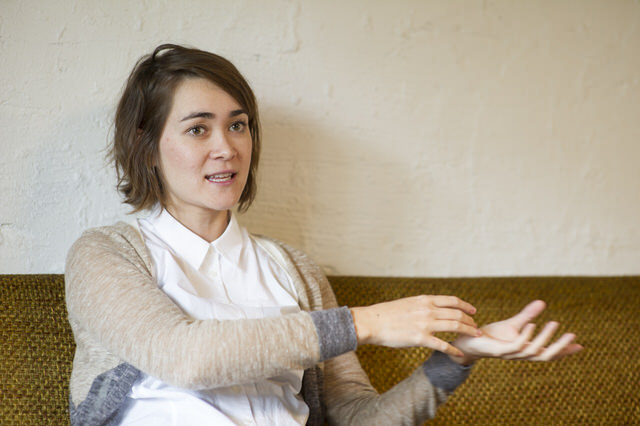
“Change.org” is a social platform that allows even the smallest ideas aimed at changing society to take shape. Through this platform, I aim to lower the barriers for individuals to initiate and start something, thereby encouraging more people to engage with society and be conscious of their country’s affairs.
At the“BEYOND Tomorrow Tohoku Future Leaders Summit 2013,” a report indicated that over 80% of Japanese high school students believe they cannot influence the government with their actions. I think this is what needs to change. These students look at the adults around them and think this way because they have never seen their opinions change the government. They don’t believe they have that much power, and this lack of self-confidence is, in my opinion, Japan’s biggest problem. It’s not a lack of talent or education; rather, it’s that they’ve never thought to change anything and don’t value their own opinions. It’s a shame and feels like we are limiting our own potential. I too was once indifferent to society, so I understand this apathy. However, changing the world with your own opinions is enjoyable, and I want others to know this. People are indifferent not because they choose to be, but because they haven’t had the opportunity or for various other reasons. Everyone is trying their best in their own way. Within this context, I want to permeate “Change.org” as a place where individuals can take action.
“We can’t change anything by speaking up.” We need to change this mindset first. To do this, we need to accumulate success stories from Change.org, one by one. Seeing one success, others may think, “I can do it, too,” and start to emulate it. This is something that can be done via the internet, and so I hope each small action will spread and become a significant movement.
As someone of mixed heritage, what I can do is say the things that Japanese people, because of their constraints or lack of confidence, cannot say themselves. There are things that are permissible because of my appearance. From there, I hope to gradually create an atmosphere where others feel they can speak up too.
Reason for Joining Change.org

I decided to join “Change.org” after a trip to Iceland. I had a wonderful trip to Iceland the previous year and decided to revisit, this time taking my mother who wanted to see the Aurora. During this trip, seeing my aging mother sparked a sense of urgency in me. Having lived in America for ten years, I spent a melancholic vacation pondering whether it was right to leave my mother alone in Japan while I stayed in the US. That evening, after returning to New York, I applied to “Change.org”. Coincidentally, the recruitment officer was in New York, and we met the next day. After talking for about three hours, I was completely captivated by Change.org’s vision. The timing of the recruiter being in New York played a significant role, but the time spent with my mother in Iceland really drove my sense of urgency to do something. While writing the cover letter to accompany my resume, what I needed to do became clear in my mind, and I felt motivated to try something new using the skills I gained in America and from my previous job.
At that time, the internet was still not used for elections in Japan, and internet-based civic movements were not yet popular. I wanted to test the context of what would happen if “Change.org” was introduced in Japan. Frankly, making it successful in Japan was going to be very difficult. It wasn’t just a matter of technology; it required changing people’s mindsets. However, if successful in Japan, it would likely influence other Asian countries as well, and I believed that this would lead to various learning opportunities.
Facing Many Criticism
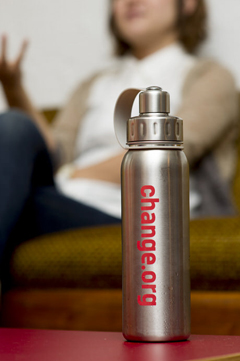
Before launching the site, I heard the words “Who cares about signatures?” from those around me countless times. There were people who criticized “Change.org” itself or our approach, and there were even those who spread conspiracy theories, claiming that we were buying and selling personal information. Initially, it felt like being struck by a nail. It’s one thing for people to express criticism constructively, but it’s painful when they attack individuals personally with their words. Once, when I called one of the staff members and said, “I’m feeling really down because someone said something terrible,” the staff replied, “You don’t have time to listen to such people’s opinions.” That really hit home, and I decided to just brush it off. Some people understand my explanation, but it’s impossible to satisfy everyone, and if they don’t understand what I’m doing, then there’s nothing I can do about it. I need to focus on those who can take a positive approach. Supporting those who truly want to change society by running as many healthy campaigns as possible is what makes me feel good. If “Change.org” succeeds, then the negative people will eventually understand.
In American activism, there’s often an intentional creation of conflict. Perhaps it’s because English is a language that allows for direct expression, but it’s common to make clear assertions and engage in opposition. In Japan, where 90% of the population is Japanese, trying to create conflict within that majority feels awkward. Instead, I believe it’s more effective to subtly create a breeze of change so that people end up agreeing to the change without even realizing it.
What I want to Change within Japan
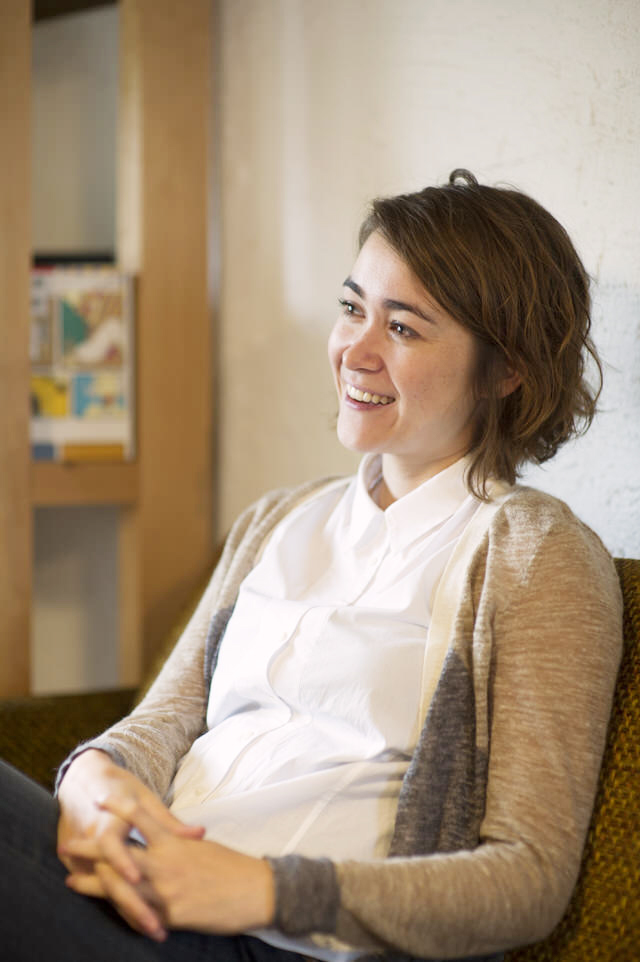
One of the reasons I returned to Japan was because I wanted to encourage young people and support women. What strongly stands out to me since returning to Japan is the challenging environment for women to thrive in. Especially in politics, it’s so old-fashioned (laughs). Even when watching parliamentary broadcasts, it’s always the same kind of people wearing the same kind of suits, and I feel that Japanese politics doesn’t reflect the diversity of its people. Additionally, I contemplate what I can do regarding sexual minorities and gay rights. In America, joining civil society activities can turn one person’s efforts into a significant movement. Japan hasn’t progressed as far in the gay rights movement, so even conducting campaigns through Change.org doesn’t spread widely, leaving me with a dilemma about what else to do. While I can provide support through my passion for public relations and web development, it’s challenging to find the time alongside my main job at Change.org.
Another aspect I want to change is English education. Even though there are incredibly talented individuals, they struggle to keep up with communication within the company. Or they may be proficient in English but not believe in Change.org’s mission, making it a challenging combination. It’s unfortunate that out of 100 staff candidates, 90 might drop out due to English proficiency alone. There’s a fundamental issue with the way education is conducted—it should focus on acquiring English proficiency for communication, not just studying for tests. Perhaps it’s not enough to just conduct campaigns; we might need to start an organization and change the mindset of institutions like the Ministry of Education.
It’s not enough to just start; you have to do it for a long time to have an impact. Building trust is essential to influencing large organizations. “Change.org” has only just begun in Japan. If we continue for a long time, it will eventually become recognized as a place for the voices of citizens. From here on, we’ll gradually grow “Change.org” into something significant.
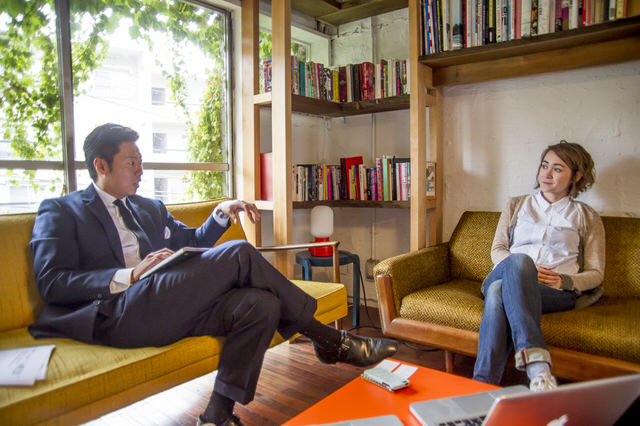
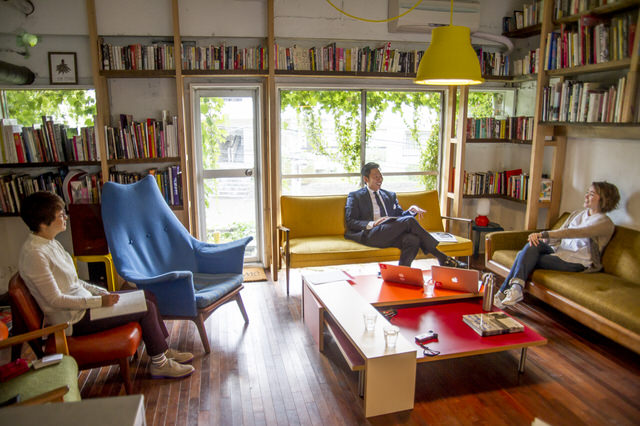
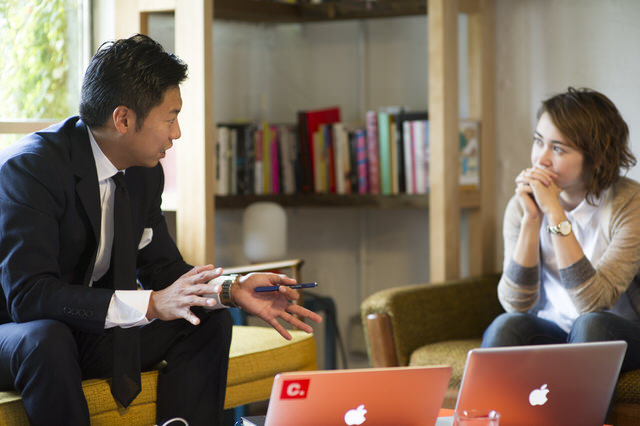
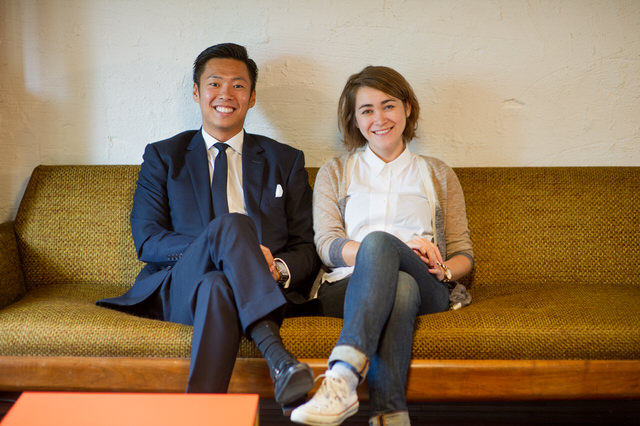
Emmy Suzuki Harris and I met as advisors for the same team at the “BEYOND Tomorrow Tohoku Future Leaders Summit 2013”. At this summit, we learned that the winning team would have the opportunity to present their proposals at the Prime Minister’s Office, so Emmy and I were determined to ensure our team’s victory. The high school students responded to this expectation, and we won convincingly. The excitement of that moment will stay with me forever.
Over the course of those two intense days spent with Emmy, I was impressed by her wonderful personality, learned about the activities of “change.org, empathized with them, and this led to her appearance in this edition of “My Philosophy”.
It was a delightful interview where I could hear about the past and future of Change.org from my perspective. I love the word “change” and I love “actions” too. I believe that being able to respond to environmental changes and take action will become a strength for both individuals and companies in the future. Please do visit the change.org website.
October 2013





